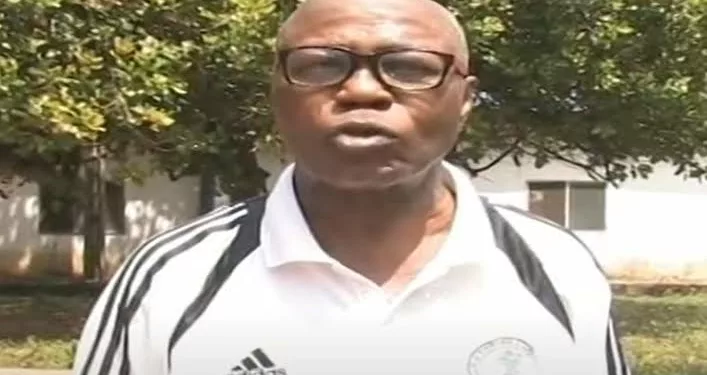The recent passing of Sebastine Brodericks-Imasuen, the first African coach to lead a national team to a FIFA World Cup title, has highlighted the sad state of neglect that many of Nigeria’s sports heroes face in their later years.
Brodericks-Imasuen led the Nigerian under-16 team to a stunning victory in the 1985 FIFA U-16 World Championship, defeating West Germany in the final. This historic achievement put Nigerian football on the global map and paved the way for future success.
However, in his final years, Brodericks-Imasuen suffered from stroke and diabetes without receiving support from the authorities.
His family pleaded for assistance with medical bills, but their calls went unheeded. Only after his death did government officials and sporting bodies rush to offer tributes and condolences.
This is sadly typical of how Nigeria treats many of its sporting legends.
While our nation is always ready to celebrate the latest victors, we quickly forget the heroes of yesterday who laid the foundation for today’s achievements.
Sportsmen and women like Nojim Maiyegun, Dick Tiger, Hogan Bassey and Rashidi Yekini proudly represented Nigeria out of a sense of patriotic duty and honor.
They sought no riches or fame. But their selfless sacrifices for national glory deserve lifelong recognition and care.
A nation that cannot honor its heroes has no right to expect loyalty from today’s youth. The names that filled us with pride when we were younger should continue to inspire future generations.
But how can we expect today’s talented sportspersons to give their all for Nigeria if yesterday’s stars died in penniless obscurity?
Our sporting legends deserve a dignified retirement. It is simply unacceptable that heroes who were once cheered by millions should spend their final days mired in poverty and ill health while begging for assistance.
The sporting authorities and government must do more to care for those who brought glory to the nation in their prime.
Retired athletes could be employed as coaches and mentors to impart their wisdom to the next generation. Legends from previous eras can inspire today’s youth far more effectively than any foreign manager.
Sports bodies should also provide financial aid and insurance coverage for aging ex-players facing health crises or financial difficulties.
More broadly, Nigeria needs to nurture a culture that values and commemorates our sporting history.
Other nations build statues, name stadiums and develop halls of fame to honor their sports icons. We must do the same. Future generations must grow up learning the names of our past heroes, so they too can dream of national glory one day.
Sebastine Brodericks-Imasuen’s death must serve as a wakeup call. We cannot keep abandoning our heroes when their spotlight fades.
The labour of those who brought national pride through sports built the foundation on which current successes are achieved.
A nation that forgets its sporting heroes has no collective identity. And a nation without identity has no future.
But paying verbal tribute is not enough. The government and sporting federations must back up their words with concrete plans of action. Past promises of pensions and healthcare for retired athletes have too often proven empty. This time, we need real change on the ground.
First, the National Sports Commission must create and maintain a comprehensive database of living sporting legends across all disciplines.
This will allow targeted outreach and assistance programs tailored to veterans’ needs. Legislation mandating this database and associated welfare schemes for past stars should be enacted.
Second, sports federations must earmark funding for retired heroes in their budgets. Camps and national trials for future teams should honor the efforts of veterans by inviting them as guests of honor and allowing today’s youth to interact with the stars of yesterday.
Finally, the private sector also has a crucial role to play through CSR initiatives. Nigerian corporations who profit from branding themselves as sponsors of popular sports teams and leagues should contribute to welfare trusts set up for ex-athletes facing hardship or illness.
Ultimately, government, business and sports authorities will need to collaborate to build a system where those who sacrificed for national glory are never abandoned once their service is done.
Only then can the future heroes we cheer today be confident that their nation will stand by them when they need it most.
The time is now to honor our past legends and vow never again to forget those who carry Nigeria’s name into the history books. But mere words are meaningless without action.
Let Sebastine Broderick-Imasuen’s tragic fate be the last time we eulogize a national hero only after failing them in life.



